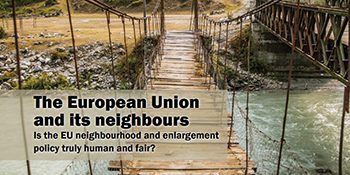by Professor Ioan Mircea Pașcu, former Vice-President of the European Parliament, Bukarest
“Enlargement” and the “Schengen regime” were conceived as somehow complementary: once fulfilling the “acquis”, a new member was automatically included in the Schengen Agreement, allowing its citizens access to the fourth freedom, namely the free movement of people, conceived to make the EU single market function properly.
While the political criteria were considered fulfilled upon admission, the inclusion into the Schengen Agreement was considered rather a technical step, complementing the admission.
This logic has been abandoned at the admission of Romania and Bulgaria into the EU on 1st January 2007, when the two new members were not automatically admitted to the Schengen Agreement (they are not even today, 16 years after obtaining EU membership!), in spite of their functioning as de facto members of it with respect to their obligations.
Moreover, this break from the initial pattern, was accompanied by a marked shift of emphasis from a straight technical to a rather imprecise political conditionality for admission into the Schengen regime.
This exception from the rule, which was applied to Romania and Bulgaria (later to Croatia until recently) signified that the two – enlargement and Schengen – have since engaged on rather separate paths, with the latter either seriously punctuated by the refugee crises of 2015-2017 or even suspended during the pandemic of 2020-2022.
With the exception of Croatia, admitted in 2013, there were no subsequent admissions, motivated by the so-called enlargement fatigue installed afterwards.
The recent invasion of Ukraine by Russia has re-opened the debate for enlargement, with Ukraine, Moldova and Georgia renewing their quest for admission. In turn, this raises the problem of even-handedess, compared with all previous admissions, an issue motivated by the marked deterioration of security in the area, following Russia’s military action against Ukraine
On the other hand, the war in Ukraine confronted the EU with almost five million refugees, many more than in 2015-2017, primarily absorbed by the neighbouring states. Notably, unlike then, this wave of refugees did not compel the EU to shut down the Schengen system, indicating the resilience of the latter, particularly after the challenge of the recent pandemic.
In conclusion, there is compelling evidence that the two – the Schengen regime and enlargement – should be brought again in sync, allowing the single market to function properly and, thus, the EU to play its desired international role. This is, with certainty, an imperative today, given the geo-political realities which the EU is forced to recognise and adjust to, making the politicisation of the admission to Schengen even more artificial.
Web European neighbourhood policy and enlargement negotiations: https://bit.ly/3PhbdcU







